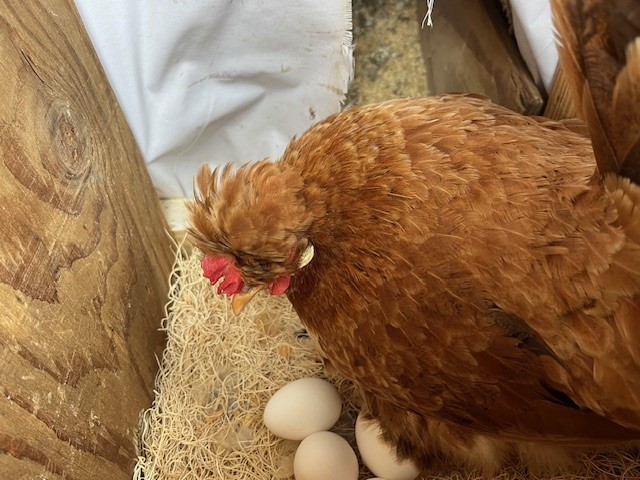
A lamb bleats shortly after she was born while her mother cleans her up at Dave and Paula Rak’s farm in Wrangell.
“See its little feet came out, then its head so it wasn’t backwards or anything,” David Rak said.
“You saw it,” both Dave and Paula said.
“Right on time,” I said.
“Yeah, we told her to wait, and she did,” Dave said.
From an outsider’s perspective, one would have to do a little digging to see the small farms and homesteads that’s around Wrangell, like the Raks’ property.
They just assisted Cindy Lou, the ewe – or female sheep – while she gave birth. Cindy Lou and her newborn are of the Suffolk breed, which is good for meat. And that’s exactly why Dave and Paula Rak have the sheep.
I asked, “What do you think this little one’s name is going to be?”
“Dinner,” Dave said.
“Yeah, we haven’t named them,” Paula said.
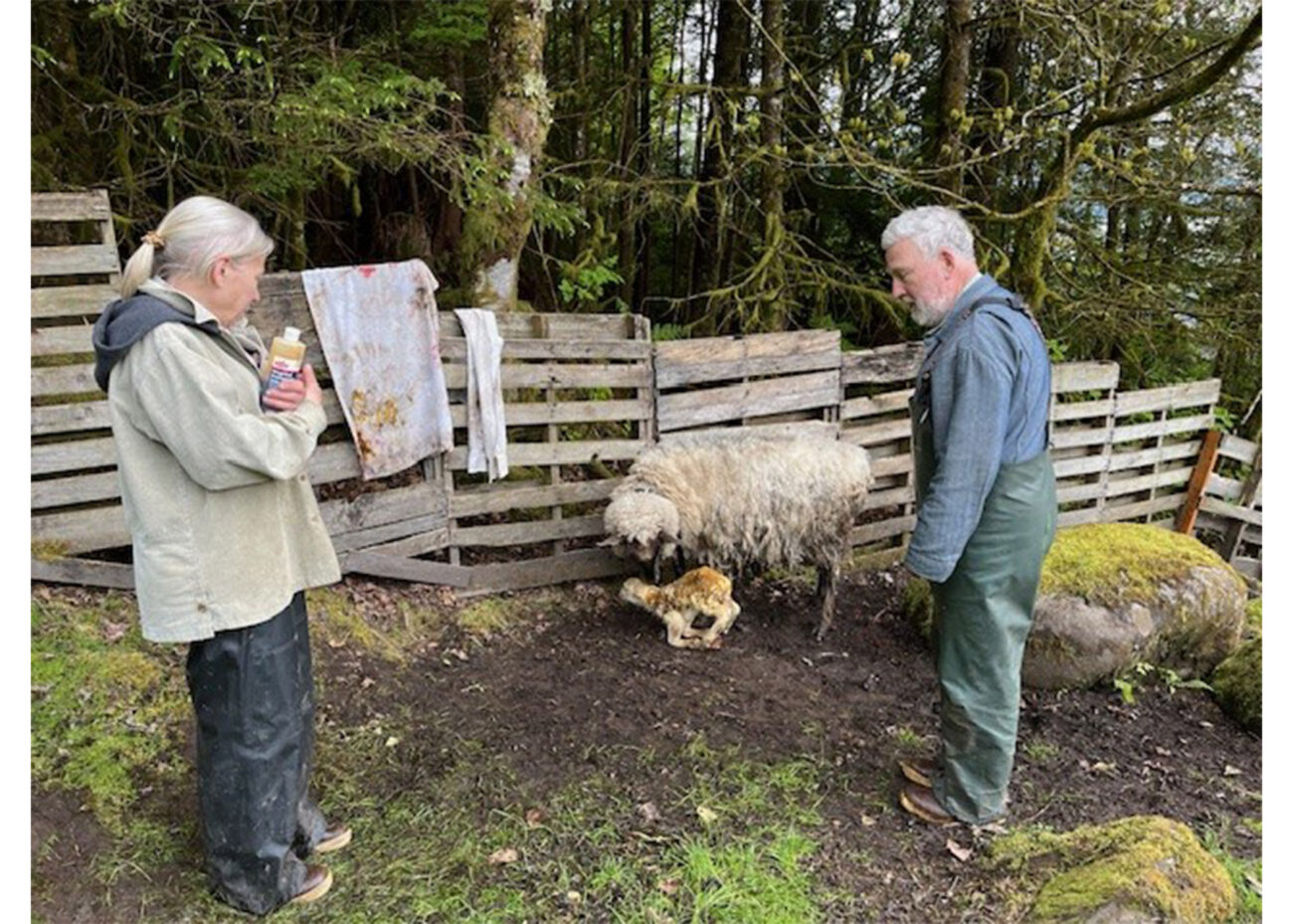
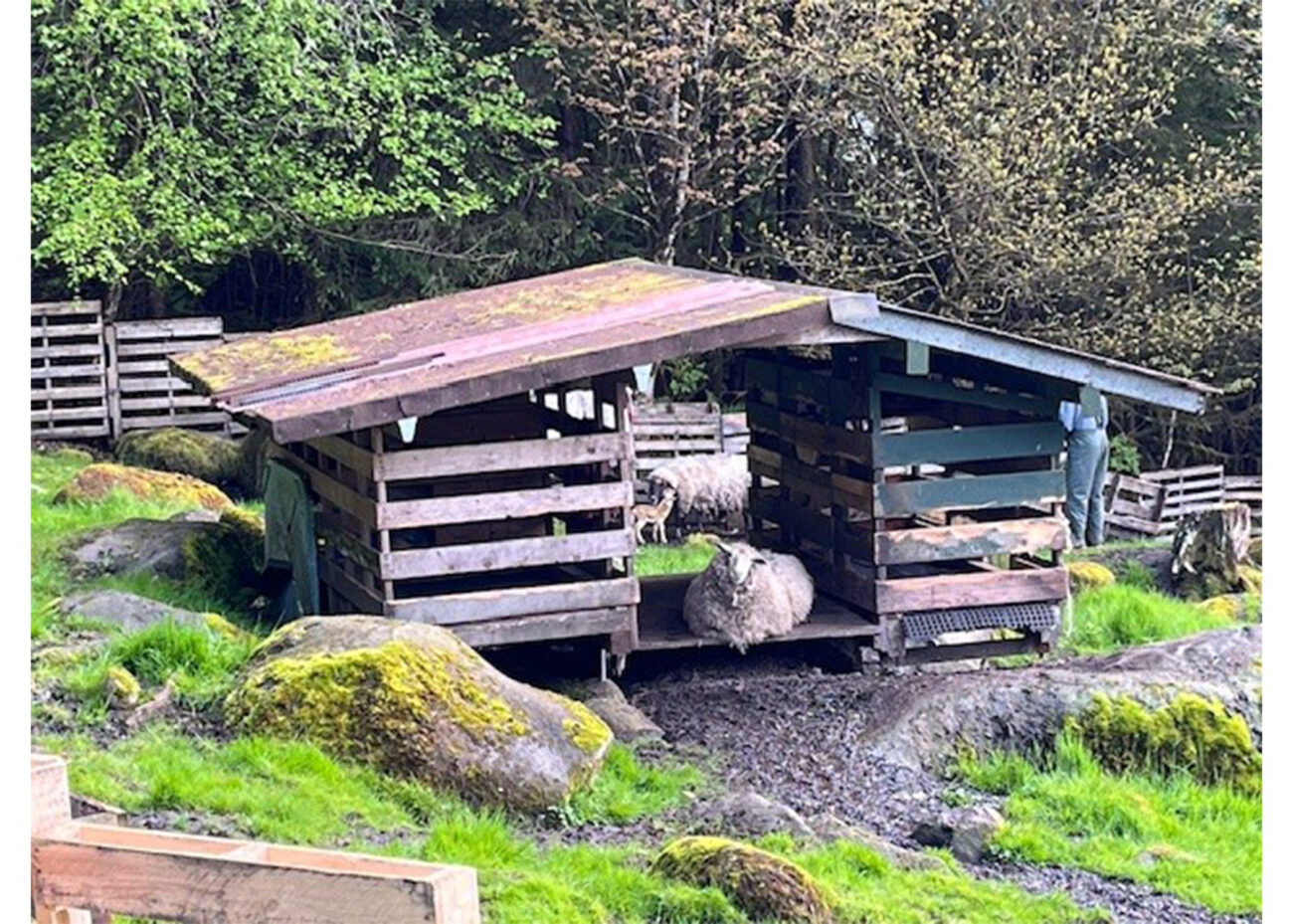
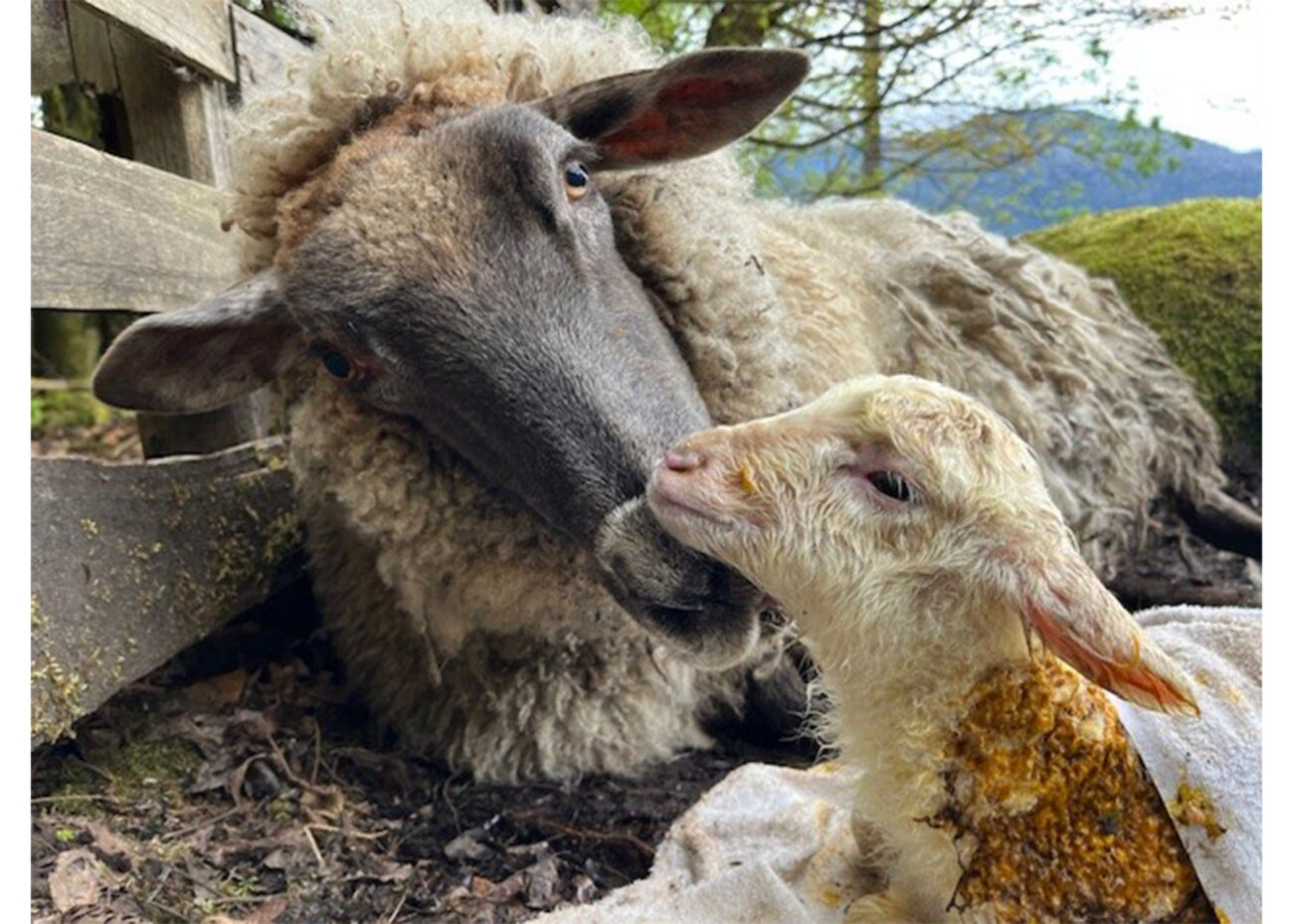
The Raks started gardening in the late 80s on their property, but didn’t have farm animals until about seven years ago. Their neighbor had sheep and goats that would graze on the Raks’ property during the summer months acting like a lawnmower. After the neighbor’s animals died. the Raks decided to keep sheep.
On top of the sheep, they also grow lots of veggies and fruit and keep chickens.
“That chicken. It’s acting kind of funny,” Paula said. “It’s just been hanging out right here. I think it’s on its last legs.”
Anna Tollfeldt also keeps chickens on her homestead a couple miles outside of town.
“Welcome to the chaos,” she said. “As you see, there are goats as well.”
Tollfeldt’s goats are for cutting back invasive plants, like orange hawkweed and might be harvested later for meat.
She has other farm animals too that she takes care of with her partner, Tony Belback.
They moved to Wrangell two years ago, but before, they worked on a remote island at a hatchery about 30 air miles from Wrangell.
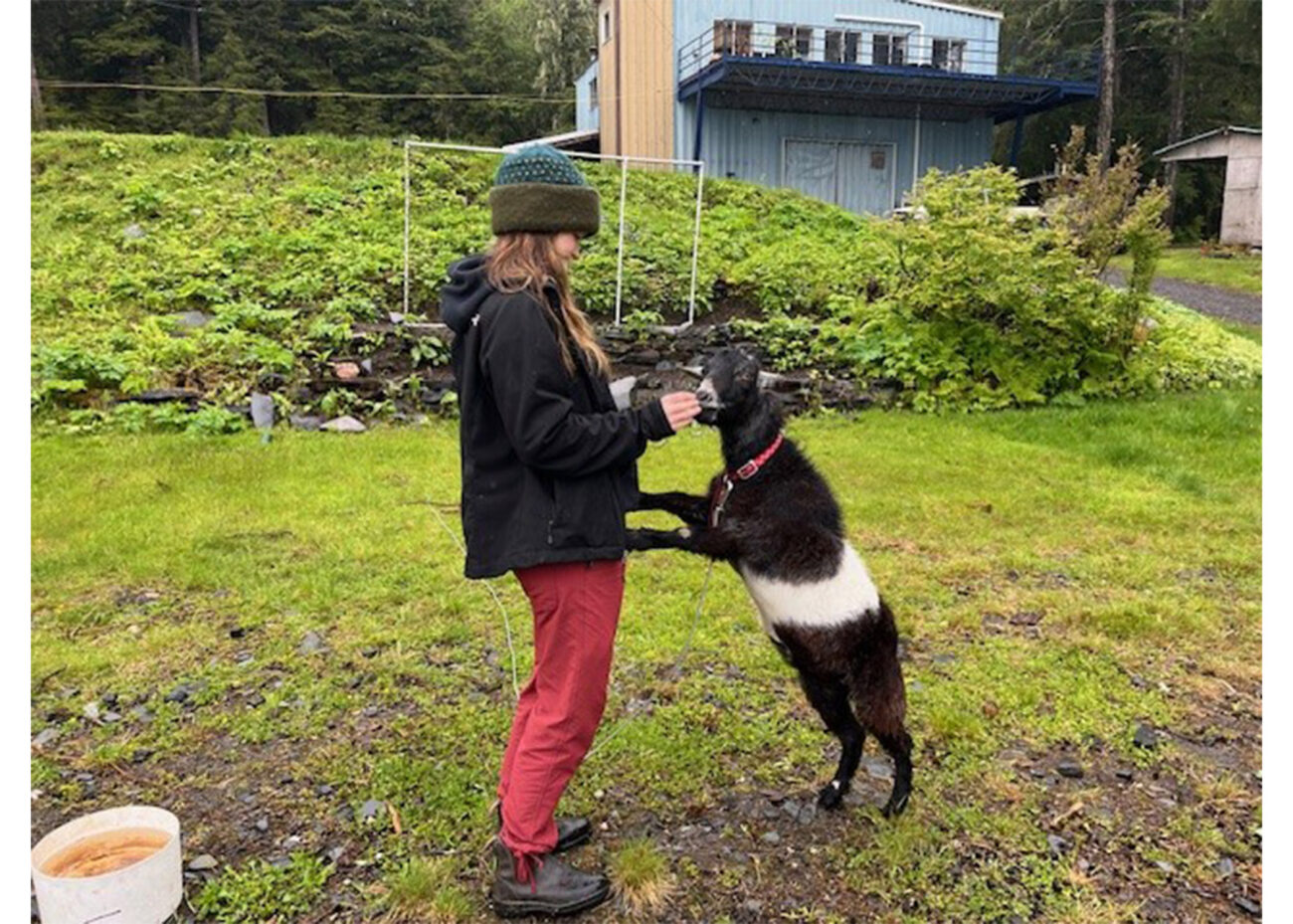
“I just always had this sense of just kind of belonging, I guess, like a feeling of home,” Tollfeldt said. “I just remember always kind of wanting to end up back here. And here I am.”
On top of goats, they also have chickens and ducks.
Tollfeldt enjoys getting eggs every day and she likes providing them to her friends and coworkers. She said she never thought she would be a chicken person, but she’s definitely a chicken person now.
“Big Red, he’s in charge of this yard,” she said. “Like when they’re free-ranging he is looking around and letting them know, like if you see something. I’ve seen them before, if an eagle flies overhead or something. We have eagles and ravens flying overhead all the time, luckily, no problems. But he’ll make a certain sound and they’ll book it for cover.”
They have different breeds of chickens, which produce multi-colored eggs- from a rich dark brown to blue.
“The idea is to have the rainbow eggs, because there’s all different colors,” she said.
Then there’s the ducks who waddle around and quack after Tollfeldt lets them out of their penned area. They produce four eggs a day.
Tollfeldt doesn’t have much time for growing plants though because she’s studying fisheries and wildlife science online at Oregon State University. She has a few tomato plants however.
But Katherine Ivy with Ivy Patch Produce grows food. She’s located closer to town than the other homesteaders.
“Raspberry bushes over there and I just planted some fireweed,” she said. “So I have some native flowers and a few blueberry plants.”
She also grows kitchen herbs, like dill and parsley, lettuce, kale, mustard greens, garlic and a whole lot more.
She starts baby greens and some herbs in her two high tunnels, which are like large greenhouses.
Ivy said that one of her bigger problems with growing produce are slugs. She tries to do as little harm as she can and not kill them. She has a few tactics to ward off the slugs.
“If they’re lazy, they’ll go off and they’ll just stop and start eating the bok choy and so then it saves my basil,” she said. “Sometimes I can have a really bad slug problem, especially in that greenhouse. I’ve got two toads that live in the corners here and they kind of keep my slugs down a little bit for me.”
Ivy sells her produce through her online store and sets up a little tent where people can stay out of the rain while they pick up their produce.
Ivy used to live on a boat and garden on other people’s properties, but now she’s thankful for her little piece of land.
“It’s so nice to be able to have my own place,” she said. “Sometimes it gets hard. I’m out here crying in the rain looking for slugs, because it’s miserable. But most of the time, I just love it. It’s just amazing.”

In spite of the challenges, Ivy, like Wrangell’s other farmers, are working the land to be more sustainable than relying on the weekly shipments from the barge.
Source: kstk.org

Leave a Reply